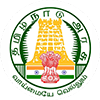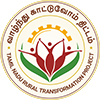Data on ground realities is always hard to come by – no matter what the subject is. More so, when it comes to data related to livelihoods and incomes of micro-enterprises in villages.
Hence, the Government of Tamil Nadu opted for immersive field visits when it wanted data on economy, infrastructure and demography to draw up a State Investment Plan to create a thriving ecosystem of sustainable enterprises in rural areas. It also made sure that only women are employed for the task of data collection, betting on their persuasive skills and commitment.
And it worked. In a matter of 8 days, in November last year, about 786 teams of 6,288 women covered 3,994 village panchayats in 31 districts of Tamil Nadu on foot, meeting and engaging with about four lakh villagers to understand their skills, sources of income, challenges, and aspirations.
The entire exercise was known as Participatory Growth Plan (PGP). The data thus collected is going to help the State government to unveil the SIP, which is a key deliverable of Tamil Nadu Rural Transformation Project (TNRTP). The project is funded by the World Bank, and executed by the Department of Rural Development and Panchayat Raj.
The challenges women faced in data collection were many. To begin with, they carried out the exercise when the first wave of the COVID-19 pandemic that hit the State in 2020, and amid lockdown restrictions. Convincing villagers to participate in interviews and group discussions was difficult, as they were reluctant to take time off from their work, in the absence of any monetary incentives.
Nonetheless, PGP was brought to its fruitful conclusion within the timeframe because of the women. Each team, comprising 8-10 women, covered about 5 villages. Team members, most of whom belonged to Self Help Groups, were known faces in the villages they visited. Their approach and perseverance helped them earn the trust of villagers and enlisted their participation in surveys and group discussions.
The Village Walk also was an eye-opener to the team, as they could learn more about the lives of people from their own villages. Ms. V.Duraiselvi from Thoothukudi, who did the Village Walk in Kumaragiri Panchayat, says, “Working as an accountant, I thought I already knew very well about the enterprises in the neighbourhood. But I was wrong. There were so many women-led enterprises I hardly knew existed like a karupatti (palm jaggery) making unit, and a tailoring unit run by a group of 5 widows.”
The team could also understand people’s aspirations and attitudes towards work. Ms. Uma of Pettavaaithalai Panchayat, Andhanallur Block, says, “We realised that farmers were only concerned with producing good yield and earning reasonable income. They had no idea about calculating profit/loss ratio. When we explained it to them, they were thrilled.”
When she met transgenders, she realised that they preferred running their own enterprises, instead of being employed, mostly because “they are not sure if they’d be paid well or treated with respect”.
 Thus, it was a learning journey for the team. With the data they collected painstakingly, the State government is in the process of developing the SIP that would free thousands of micro-enterprises – such as those involved in making candles, sanitary napkins, and small units like tailoring, dairies, and beauty parlours, from the clutches of loan sharks. It would also enable them to gain access to low-interest loans from banks for the first time.
Thus, it was a learning journey for the team. With the data they collected painstakingly, the State government is in the process of developing the SIP that would free thousands of micro-enterprises – such as those involved in making candles, sanitary napkins, and small units like tailoring, dairies, and beauty parlours, from the clutches of loan sharks. It would also enable them to gain access to low-interest loans from banks for the first time.
PGP now stands as an excellent case study to highlight the difference women can make in data collection at the grassroots level.



0 Comments